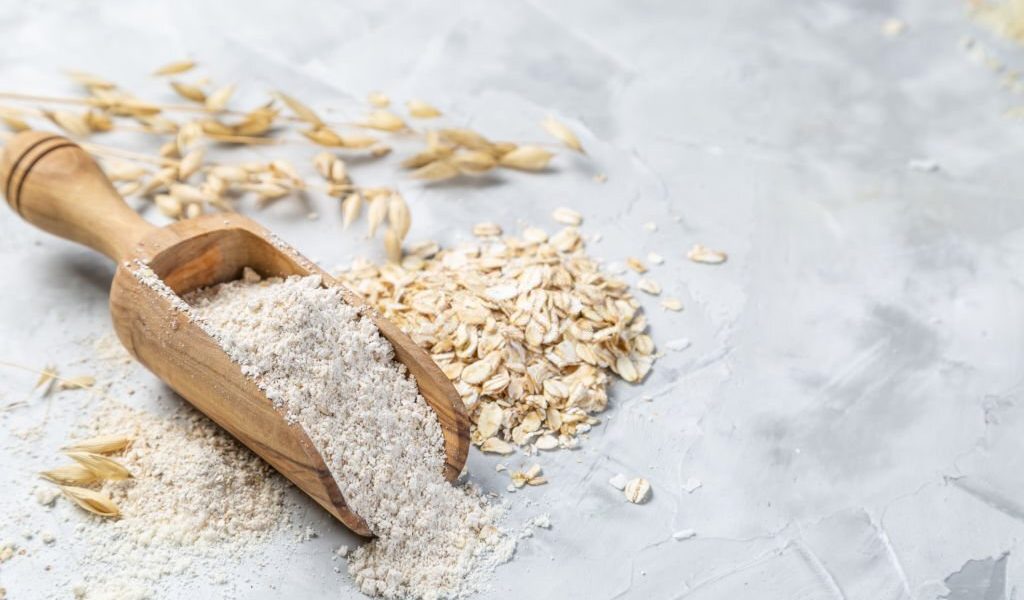Oat fiber is becoming a favorite baking ingredient of many individuals on a keto or low-carb diet. It has zero fat and protein and is very low in carbohydrates. While oat fiber is deemed with “no real nutritional value,” it’s ideal for those trying to lose weight because its high fiber content will make you feel full for a longer time.
But what to do if you run out of oat fiber? Don’t fret, as there are other oat fiber alternatives or substitutes you can use. These options are also low in carbohydrates, keto-friendly, and rich in fiber.
What is Oat Fiber?
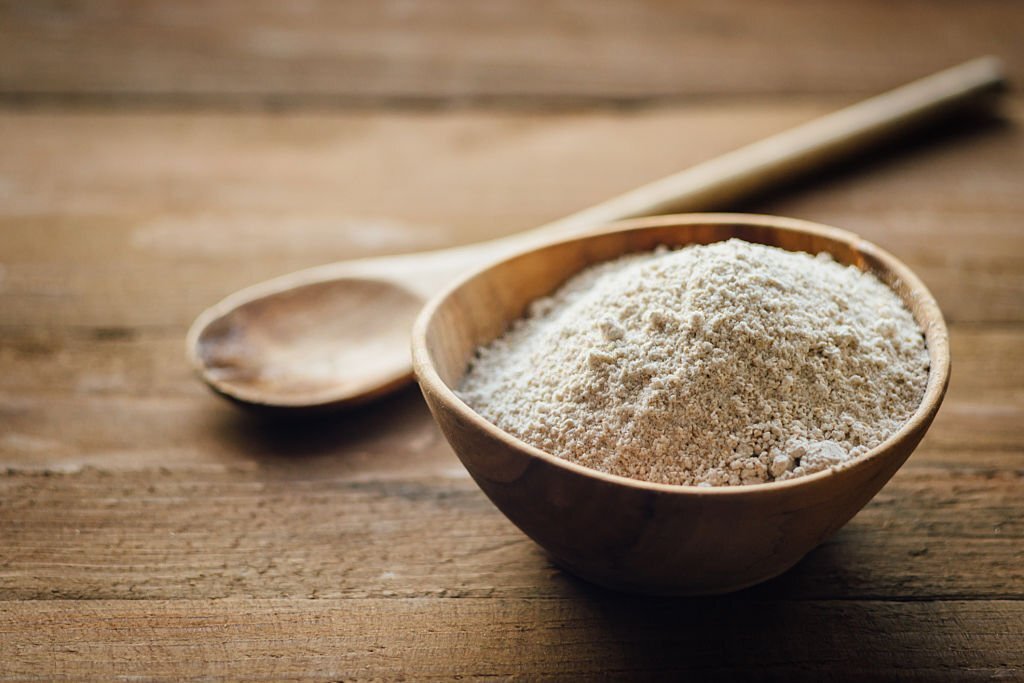

Oat fiber is flour made from the ground oat hull or husk. For individuals trying to lose or control their weight, oat fiber is a great addition to their diet. It doesn’t add any calories or carbs to your diet but boosts your fiber level.
Oat fiber is primarily insoluble fiber, meaning the body cannot digest it into calories. It can make you feel full for a long time because it simply fills your stomach and intestines until you’re ready to relieve yourself.
Studies show that insoluble fiber can curb your cravings and control your appetite. It can also decrease your body weight and protect you against obesity.1
Aside from helping you lose weight, oat fiber can also promote heart health, boost your metabolism, support healthy gut bacteria, and regulate blood sugar levels.
Oat fiber can be a substitute for all-purpose flour or sugar, so your baking goods will be rich in fiber minus the added calories. You don’t use oat fiber as the total replacement of flour. Instead, it’s used as a binding ingredient and in combination with other flours.
Oat fiber helps add bulk, flavor, and fiber to your baking goods. It can also be a viable filler for cooking meats.
The 6 Best Oat Fiber Substitutes You Should Use
You can also consider other alternatives when you run out of oat fiber. Here, we listed six of the best oat fiber substitutes you could use:
- Almond Flour
- Psyllium Husk
- Chia Seeds
- Flaxseed Meal
- Coconut Flour
- Lupin Flour
1. Almond Flour
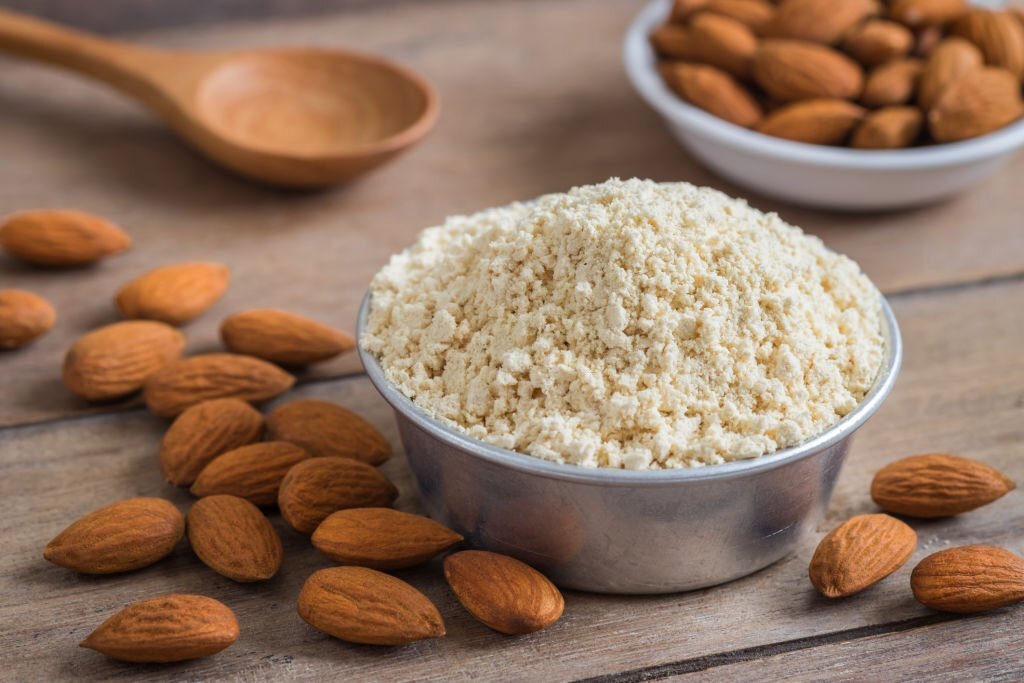

Almond flour is among the most popular keto flour substitutes. It’s also a great choice for those individuals on paleo, grain-free, or low-carb diets.
This superfine flour is made from ground almonds and is gluten-free, making it safe for those individuals who have a wheat allergy, celiac disease, or non-celiac gluten sensitivity.
Almond has been known as a “superfood” because its rich in fiber and antioxidants. As a flour, it contains 2g of fiber and 3g of carbs per 2 tablespoons (14g).2
Read More: Best Dry Fruits To Accelerate Your Weight Loss
Oat fiber is more absorbent than almond flour, so you may need a binding agent like an egg or chia seeds when substituting it. In most baked goods, the typical ratio is 1 ¾ cup almond flour for every ¼ to ½ cup oat fiber.
2. Psyllium Husk Powder
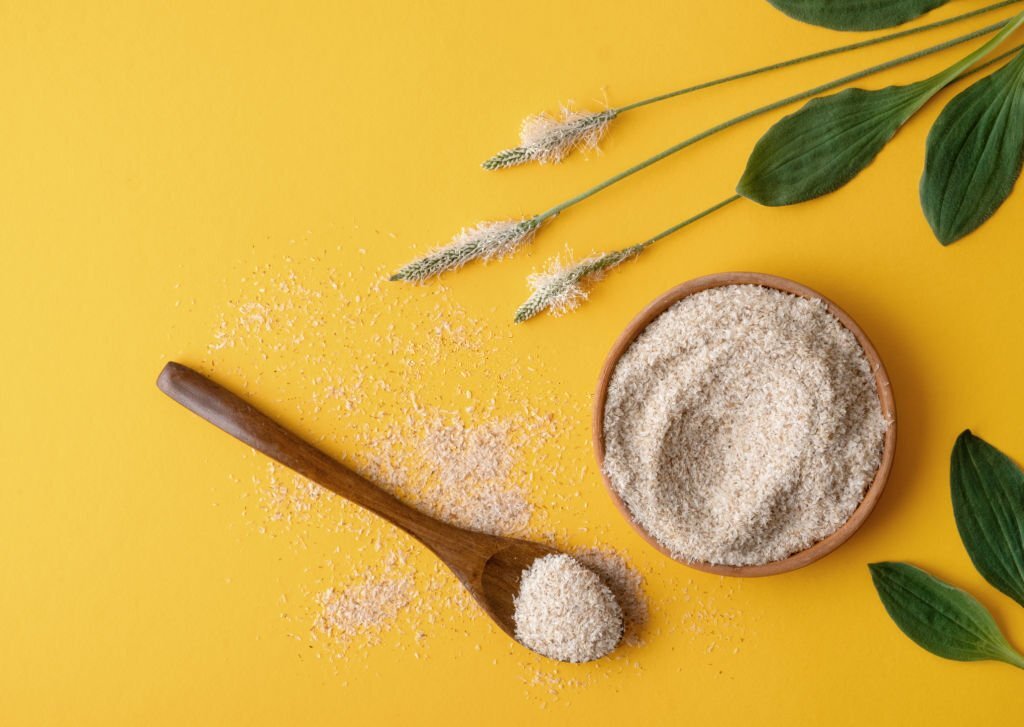

Psyllium Husk is considered the best and most often used oat fiber alternative. Psyllium husk powder is made from the husks of the seeds of the Plantago ovata plant.
It’s rich in soluble fiber, slowing your digestion and allowing your body to absorb more nutrients. This type of fiber absorbs water and turns into a gel-like substance that can aid in better digestion, constipation, irritable bowel syndrome (IBS), and others.
Unlike the almond flour, psyllium husk powder already acts as a binding and thickening agent. It’s best to add in keto recipes like pizza dough because it helps improve its texture and elasticity.
To use psyllium husk powder in baking, you need to combine it with another flour. The usual ratio is to mix 1 tablespoon of psyllium husk powder per 1 cup of gluten-free flour.
3. Ground Chia Seeds
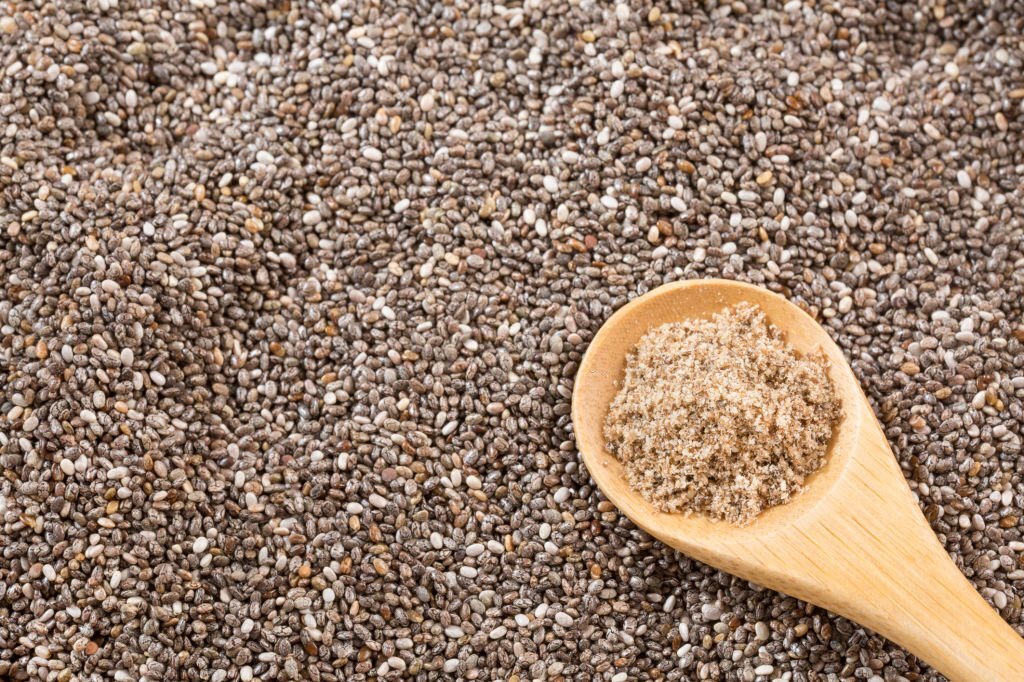

Ground chia seed or chia flour is also an ideal substitute for oat fiber when making delicious low-carb baked goods like brownies or cakes. It’s also great in pudding and yogurt recipes because of its gel-like consistency.
Chia seeds are generally low in absorbable carbohydrates and high in fiber content. More than 80% of its carbohydrate content is in the form of fiber. Like oat fiber, ground chia seeds contain primarily insoluble fiber (85–93%).3
Like psyllium husk powder, ground chia seeds are great in gluten-free baking because it already acts as a binder and a thickener. It’s used in combination with gluten-free flour or any low-carb flour to maintain a fluffy texture to your baked goods.
To use ground chia seeds as a substitute, use the general rule of a 1:1 ratio with gluten-free flour.
4. Flaxseed Meal
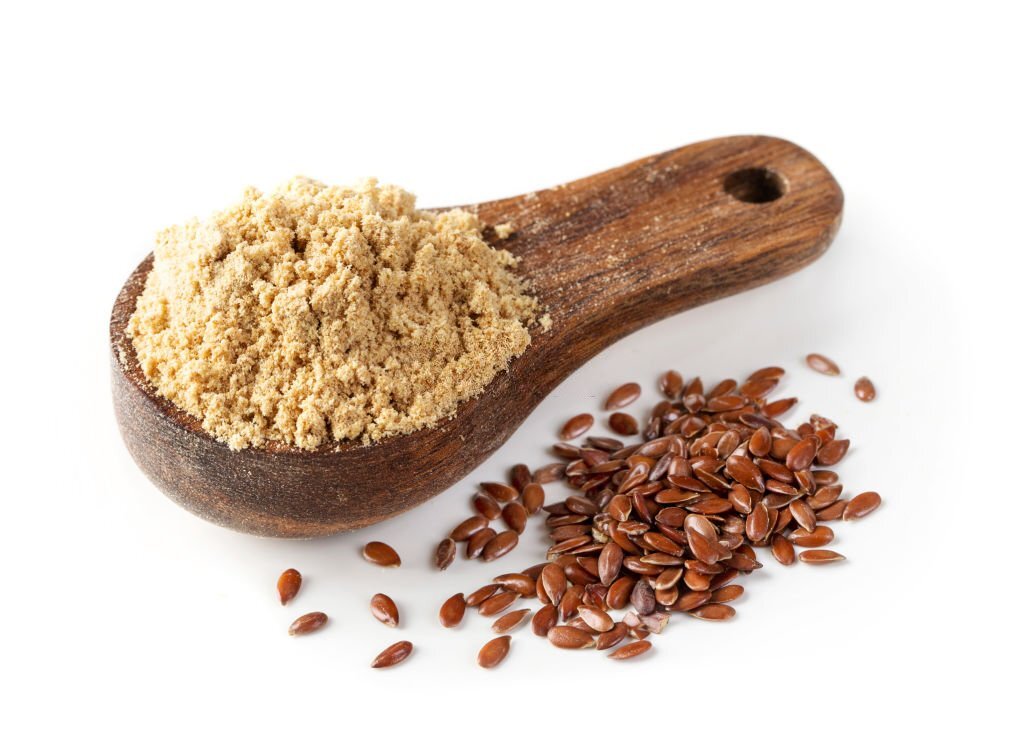

Flaxseed meal is another nutritious substitute for oat fiber. Like chia seeds, flaxseeds quickly absorb a lot of liquid and are usually combined with other flours in baking.
Flaxseed is rich in B vitamins and fiber, helpful in losing weight. In 100g of flaxseed, it contains an impressive amount of dietary fiber at 27g. It contains both insoluble and soluble fiber. But like oat fiber, the majority of its fiber is insoluble.4
To use as a substitute in baking, replace ¼ of the regular flour needed in the recipe with flaxseed meal. Instead of using regular flour or all-purpose flour, you can use gluten-free o any low-carb flour for the rest of the recipe.
When you use flaxseed flour, expect the baked goods to be smaller, denser, and chewier.
5. Coconut Flour
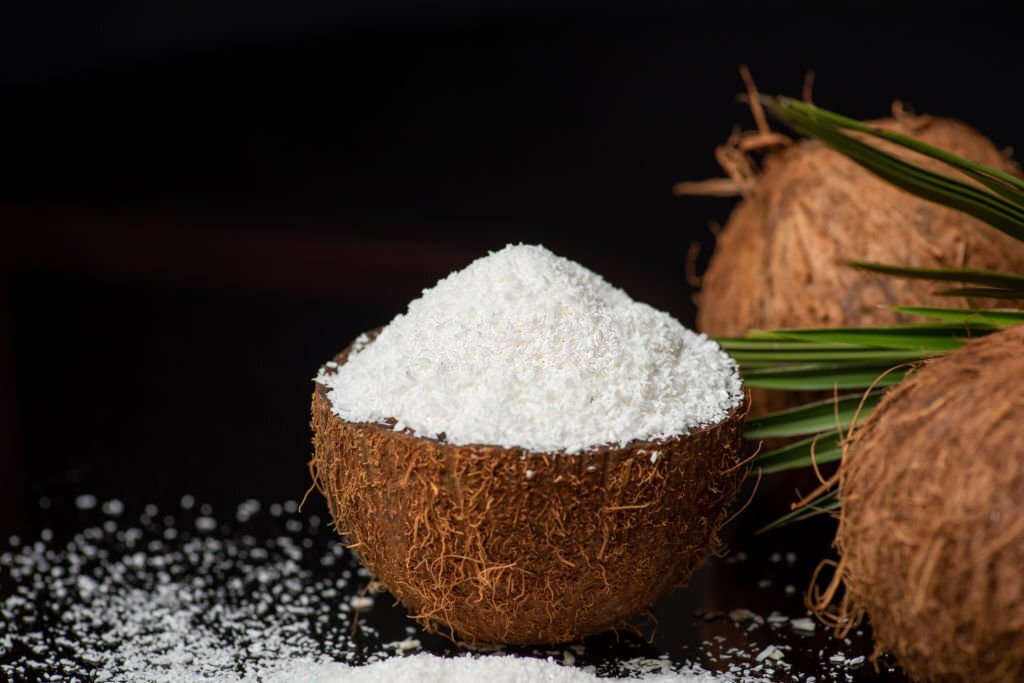

Coconut flour is made of dry coconut meat that has been ground into a smooth powder. It’s gluten-free, grain-free, and rich in fiber.
Coconut flour contains both soluble and insoluble fiber. It’s also low in carbs and has higher protein content than wheat flour, making it a popular choice among those on a low-carb diet.
Like the rest of the substitutes, coconut flour is best used when combined with gluten-free flour or other low-carb flour like almond flour when used in baking.
Coconut flour quickly absorbs liquid, so you only need a small amount in most recipes. Following the general ratio of 1:1 will lead to extremely hard and dry baked goods.
6. Lupin Flour
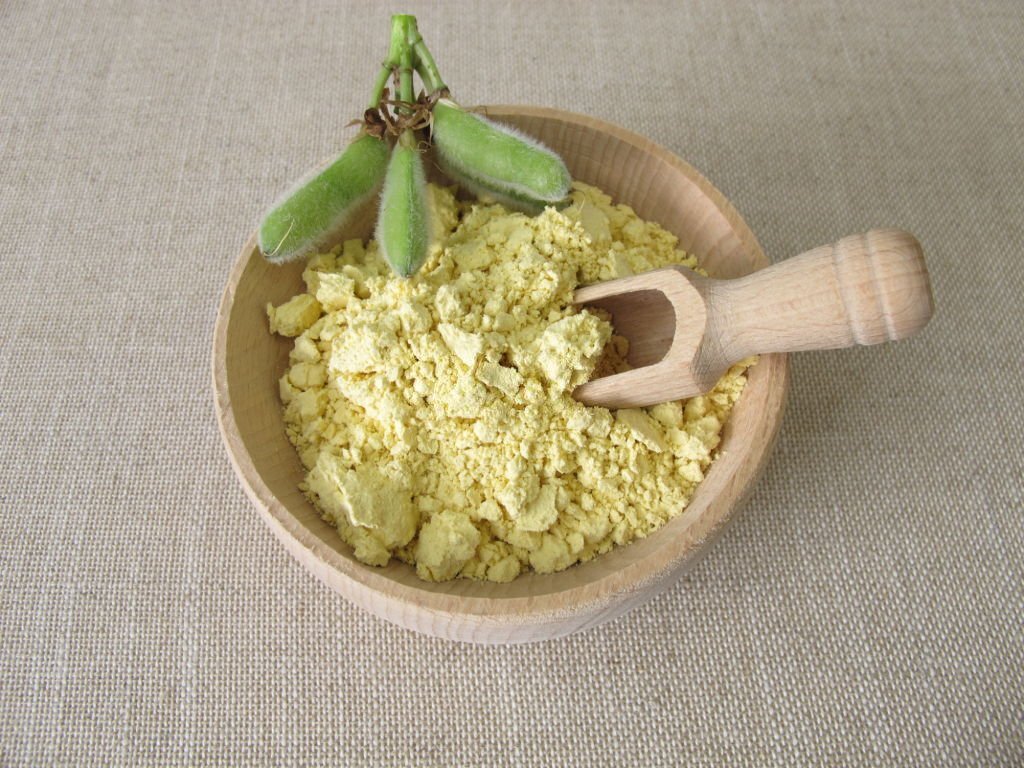

Another keto-friendly flour substitute is the lupin flour, made of ground sweet lupin beans. It’s generally low in carb, gluten-free, and low in the glycemic index, making it a good weight loss aid.
Like Psyllium Husk, Lupin flour is rich in soluble fiber that turns into a gel when digested. It helps control your appetite, promotes overall body fat reduction, and keeps your gut bacteria healthy.
This bean-based flour is usually used in making pasta but can also be used in baking when combined with other low-carb flour like almond flour or coconut flour.
To use lupin flour in baking, replace ½ of the flour needed in your recipe with lupin flour.
This will add more flavor and color to your baked goods. It will also have less gluten content. To make it more gluten-free, replace the rest of the remaining regular flour with almond flour or gluten-free flour.
Oat Fiber Substitutes – In Short
I hope this list of oat fiber substitutes is helpful to you! These flours are the most comparable alternatives to oat fiber.
Oat fiber is the way to go if you’re looking for a keto-friendly flour substitute with no carbohydrates or calories! But if you run out of oat fiber or want to try something else, you can try these low-carb, fiber-rich flours substitutes.
References:

